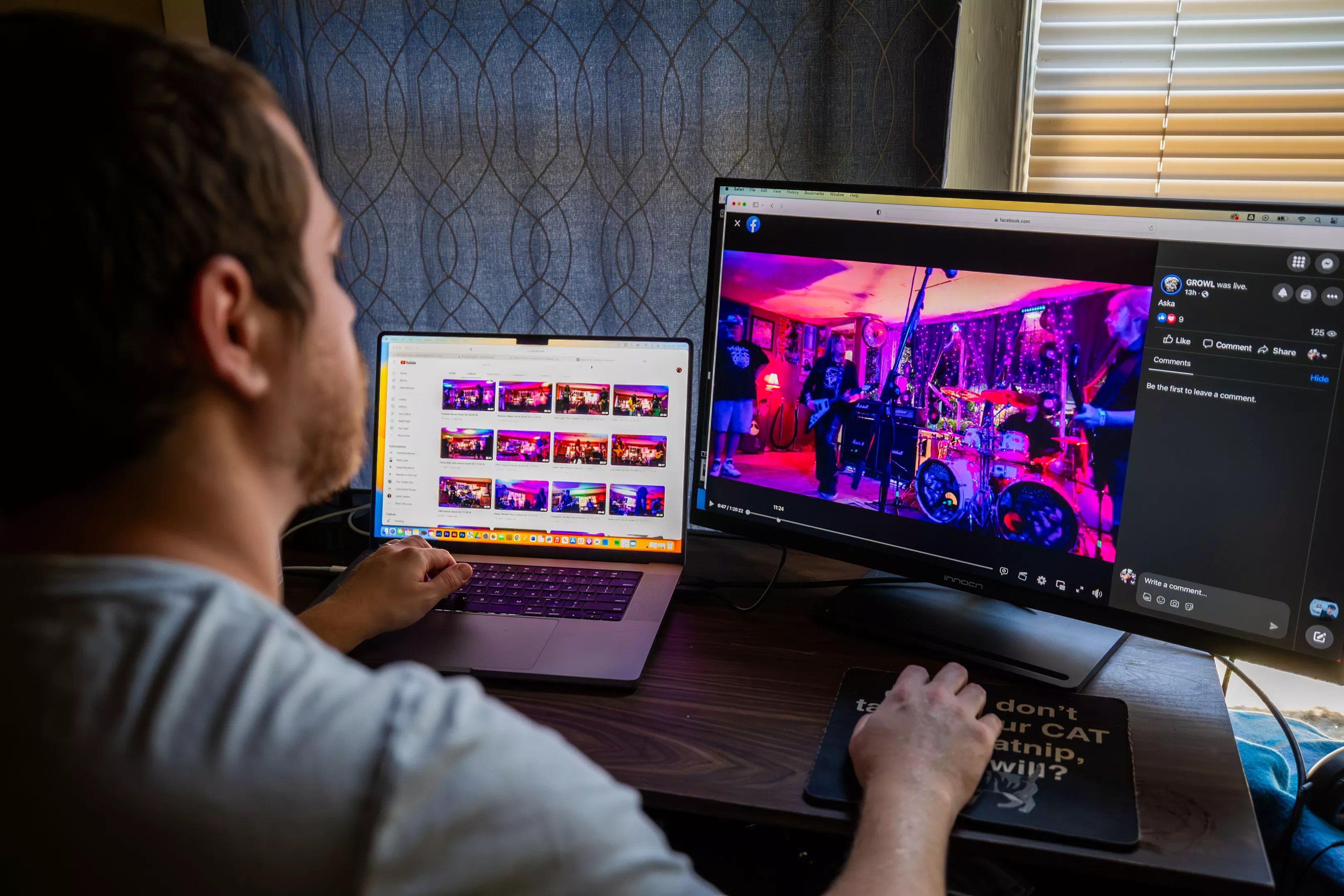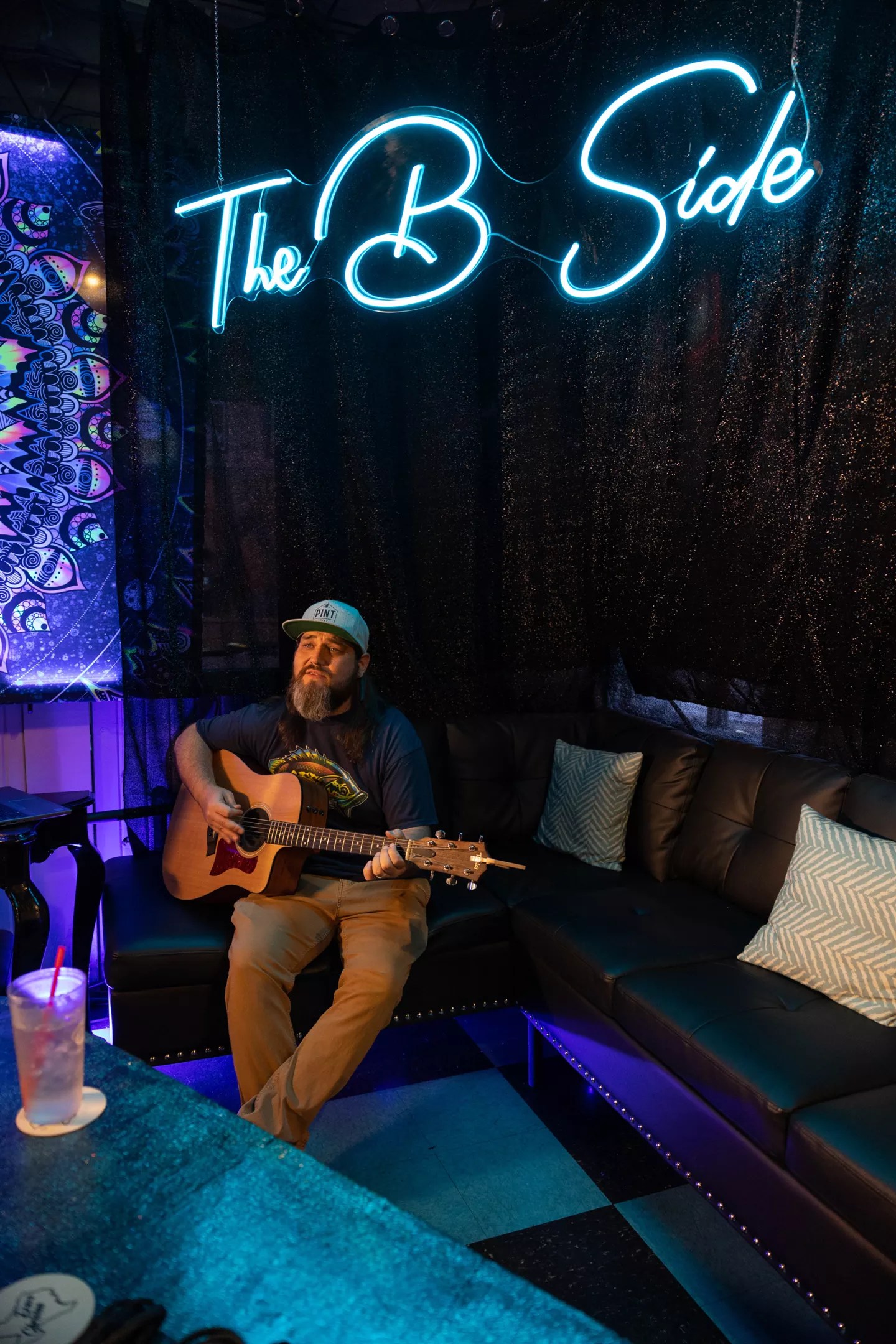
Andrew Sherman

Audio By Carbonatix
It’s a whole new world when it comes to live entertainment. Until not all that long ago, it seemed people were still pouring into venues to see live music. And those bands that couldn’t bring a minimum number of people to a show ran the risk of losing gigs on choice nights, getting a shitty time slot or even losing the chance to play that venue at all. Of course, venues had to make a profit, so this arrangement made sense – but it gave venues all the control.
Even before COVID, venues and artists began streaming – mostly on Facebook or Instagram Live – in order to connect with viewers at home. It felt a bit voyeuristic even. In 2020, all events and performances were moved online, our new home planet.
As the pandemic gave people thousands of reasons to stay home and made it extremely difficult for music venues to survive, some of them turned to live-streaming their shows for those who wanted to watch from home. And though the pandemic now seems a thing of a past, many venues are still streaming their live shows.
But why? We asked a few venues still streaming how they’re successfully monetizing their streams. And what the value is from streaming in the first place. The range of answers was wide.
David Waits manages Growl Records in Arlington, which also operates as a live music venue. The record store has streamed every show to Facebook Live for the past six years. These videos are available to view at any time, and the streams have always been free.
“The live streams are free promotion for the venue/record store and the bands,” Waits says. “The bands are able to share and use the videos as they fit. [The] main reason for live music is to showcase the bands and to show our support for live original music.”
Whether the streams are helping grow audiences is not a quantifiable answer, but Waits says they do help.
“There is no true gauge to determine any increase in audience growth other than the number of followers on Facebook and Instagram,” he says.
A record store faces much different challenges than a bar or music venue, however. Three Links in Deep Ellum was a virtual Guinea pig of sorts for a new platform called Fansub.
Evan Johnson, general manager of Three Links, explains: “It’s a quasi-social platform, kind of aimed and geared at smaller, independent artists and venues, trying to connect them and get them gigs, but one of their offerings on the platform is a streaming option for shows.”
The company, he says, set up several static cameras throughout the bar. “And then either a board mix or a broadcast mix from our sound engineer [which] just goes to a little tablet, and then that feeds to the Fansub platform,” Johnson says.
He adds that Fansub is primarily responsible for this set-up.
“There’s not a whole lot of real-time editing or anything like that really needs to be done,” Johnson says. “They’re just taking whatever we feed them and putting it up on the platform. But, yeah, there is some back-end setup stuff that goes into what they manage. All we have to do is create the event, and they do everything else.”
Johnson says Three Links plans to monetize the streams down the line, but the cost will ultimately be determined by the bands.

Mason Adams performing on Six Springs Tavern’s “B Side” set.
Andrew Sherman
Three Links has another reason to try to increase audiences without increasing capacity.
“The neighborhood changing around us with our still limited capacity from everything we’ve been dealing with the city,” Johnson says in reference to the policing of the bar’s attendance. “Just not being able to put as many people in here as we used to. We just really have to look for those new revenue streams wherever we can find them [and] it’s a way for local independent artists to get their name out there.”
As the moment, Fansub is still working out some bandwidth issues so there have been no live streams lately at Three Links.
Club Dada faces the same issues as Three Links, but management are on their own to figure out their streaming situation.
“The pandemic showed us you could reach the next level of success, that you could reach so many people in so many places,” says DJ Suede, who is at Dada’s streaming helm. “And now it’s kind of no reason to stop that, you know what I mean? Even though people can come [to Club Dada] it adds extra value. If you got a live event, people are streaming their live event, they can enjoy it in other places. So it’s a way to build for the venue.”
Suede says the club will be streaming most of its big shows and that Dada plans on monetizing these streams, though they are still in the process of getting the streams set up.
Bradley Springs, owner of Six Springs Tavern in Richardson, has a different approach to streaming. Springs created a channel that isn’t only for his Taverns shows; he is open to all video submissions for his channel, WellspringTV.com.
“We’re accepting of all arts, not just music,” he says. “We’ll take short films submissions, because a lot of [filmmakers] have a lot of trouble getting distribution to just get [their films] out to the world. So this kind of got spitballed together into this one catch-all kind of thing for independent artists. And at this point we’re just trying to get as much content as we can. We pretty much tape everything at this point.”
It’s currently free to tune into Wellspring TV to watch anything on the channel, including shows such as the Wake and Bake Brunch hosted by Sunny Disposition, or the Mason Adams show featuring singer-songwriters chopping it up and swapping songs in The B Side Lounge, a living-room-like set for intimate streaming shows.
“For me, it’s more about … for the artist, by the artist,” Springs says. “I’m not looking to monetize it. I mean, yes, it’d be great if the subscription side of the house brings in a little something to kind of help the cost, yeah. But as far as the actual pay-per-view livestream kind of stuff, it’s more about just spreading the word on the bands, because it has to be a symbiotic relationship. I mean, the bands have no place to play if there’s not me, and I have no place if there’s no bands.”
While streaming is not always financially lucrative, venues are finding many different reasons to continue the practice beyond money. Reaching wider, potentially international audiences definitely has value to a small venue in Dallas, even if the money isn’t always there to prove it. There may never be anything that truly replaces the energy and magic of being at a live show, but for those who can’t be there in person, these venues offer a chance to see a show from the comfort of home.